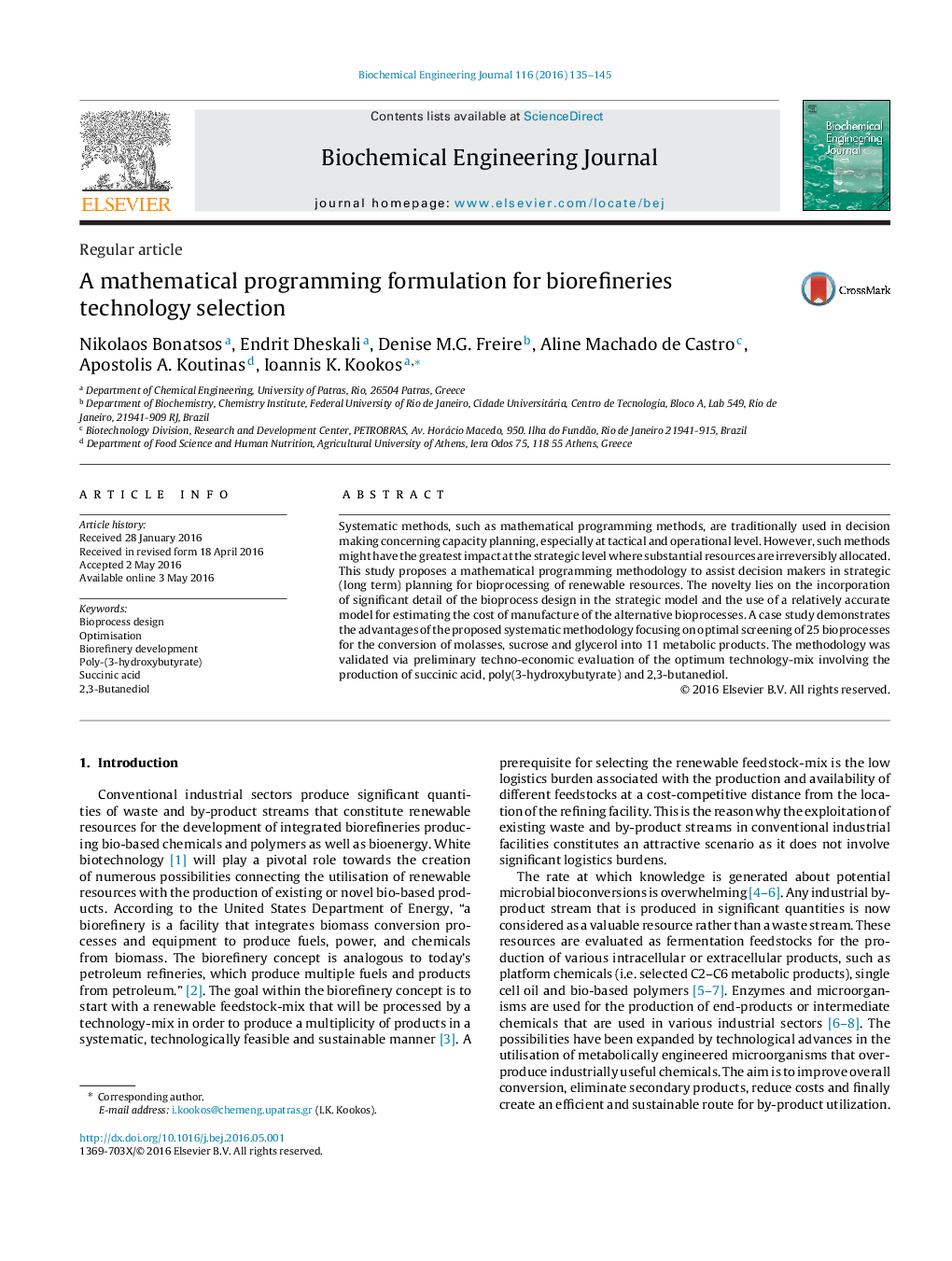| Article ID | Journal | Published Year | Pages | File Type |
|---|---|---|---|---|
| 6450472 | Biochemical Engineering Journal | 2016 | 11 Pages |
â¢A mathematical formulation for the systematic design of biorefineries is proposed.â¢An extensive case study is presented to evaluate the usefulness of the methodology.â¢The methodology was validated via preliminary techno-economic evaluation.
Systematic methods, such as mathematical programming methods, are traditionally used in decision making concerning capacity planning, especially at tactical and operational level. However, such methods might have the greatest impact at the strategic level where substantial resources are irreversibly allocated. This study proposes a mathematical programming methodology to assist decision makers in strategic (long term) planning for bioprocessing of renewable resources. The novelty lies on the incorporation of significant detail of the bioprocess design in the strategic model and the use of a relatively accurate model for estimating the cost of manufacture of the alternative bioprocesses. A case study demonstrates the advantages of the proposed systematic methodology focusing on optimal screening of 25 bioprocesses for the conversion of molasses, sucrose and glycerol into 11 metabolic products. The methodology was validated via preliminary techno-economic evaluation of the optimum technology-mix involving the production of succinic acid, poly(3-hydroxybutyrate) and 2,3-butanediol.
Graphical abstractDownload high-res image (123KB)Download full-size image
